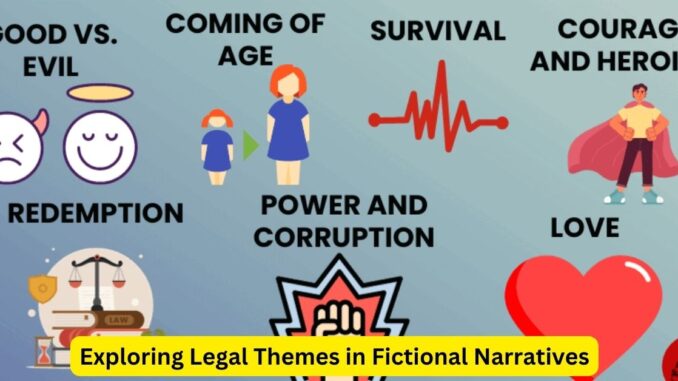
The intersection between law and literature has long been a captivating realm, where legal concepts and ethical dilemmas are intricately woven into fictional narratives. Through storytelling, authors have artfully depicted legal frameworks, courtroom dramas, and ethical quandaries, offering readers a unique lens through which to contemplate societal norms and the complexities of justice.
Exploration of Moral Dilemmas: Literature often delves into moral ambiguities and ethical dilemmas inherent in legal situations. Novels like Harper Lee’s “To Kill a Mockingbird” or Fyodor Dostoevsky’s “Crime and Punishment” intricately explore themes of justice, morality, and the human condition. These works compel readers to contemplate the grey areas of right and wrong, challenging established societal norms.
Courtroom Dramas and Legal Intrigue: Some of the most gripping stories in literature revolve around courtroom dramas, showcasing legal battles and the complexities of the justice system. Works such as John Grisham’s “A Time to Kill” or Franz Kafka’s “The Trial” unravel the intricacies of legal procedures, highlighting the power dynamics, flaws in the system, and the impact of legal proceedings on individuals’ lives.
Representation of Legal Professionals: Literature often portrays lawyers and judges as central characters, providing insights into their professional lives and personal struggles. From the idealistic Atticus Finch in “To Kill a Mockingbird” to the morally conflicted lawyer in William Landay’s “Defending Jacob,” these portrayals offer nuanced perspectives on the challenges faced by legal professionals.
Critique of Legal Systems: Some literary works serve as critiques of legal systems, questioning their fairness and efficacy. George Orwell’s “1984” and Aldous Huxley’s “Brave New World” envision dystopian societies where legal structures oppress individual freedoms, prompting contemplation on the consequences of unchecked power and authoritarian rule.
Cultural and Historical Reflections: Literature also serves as a reflection of cultural and historical legal contexts. For instance, Arthur Miller’s “The Crucible” delves into the Salem witch trials, shedding light on the impact of mass hysteria on justice. Similarly, Charles Dickens’ works often expose social injustices prevalent in Victorian England’s legal system.
Empathy and Human Stories: Legal themes in literature humanize legal issues by presenting stories that evoke empathy and emotional connections. These narratives allow readers to empathize with the struggles, triumphs, and vulnerabilities of characters embroiled in legal conflicts, fostering a deeper understanding of the human experience within legal contexts.
In essence, the marriage of law and literature enriches our understanding of legal principles, ethical quandaries, and the complexities of justice. Through fictional narratives, authors weave compelling tales that not only entertain but also provoke contemplation, challenging readers to examine their beliefs and perceptions about the legal systems that shape our societies.
Leave a Reply